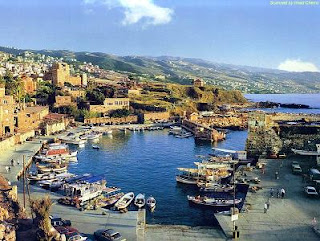So, who’s coming to Lebanon these days?

I was astounded by the cavalier way in which one business report on a local channel dealt with tourism figures. They tried to take a decidedly dismal snap shot of one sector of the economy, polish and buff it a little to make it look better than it actually is. The economic situation is decidedly bad and getting worse. We are now more reliant on remittances from Lebanese working abroad than at any other time in our history except for the darkest days of civil war. There is rarely a household in
The business report said that
despite some Arab countries warning their citizens not to travel to Lebanon Lebanon
In fact, the number of tourists
from the UAE, at one time a growth segment, was down by 33 percent this year from
last year, and accounted for just ‘four percent’ of total Arab tourists.
Kuwaiti tourist numbers this year fell by 29 percent from 2011 to make up just ‘nine
percent’ of total Arab tourists coming into the country. I think it’s fair to
say the situation could not be worse if the shooting had started.
In fact, Lebanon has been attractive for many Arabs, as a
safe haven and a refuge that is, it has attracted middle class families fleeing
Syria Syria has thwarted many from coming to Lebanon
When the reporter mentioned American
and European tourist numbers, which are significant, what he failed to point
out is how many among these incoming visitors were Lebanese with dual nationality
coming home to visit family. In fact, the Lebanese settled in the US , Canada ,
Australia , and France Ireland , Italy ,
and Eastern Europe arrived at American shores,
I doubt they were too eager to return to the home country. But it seems for the
Lebanese their homeland has a stronger hold on them.
I know the instinct in a
conservative society and among some of the conservative owners of media outlets
in this country is to focus on the positive and gloss over the negative, but
people are not stupid so don’t talk down to them. Be honest, even painfully so,
people will thank you for it in the end.



Comments
Post a Comment